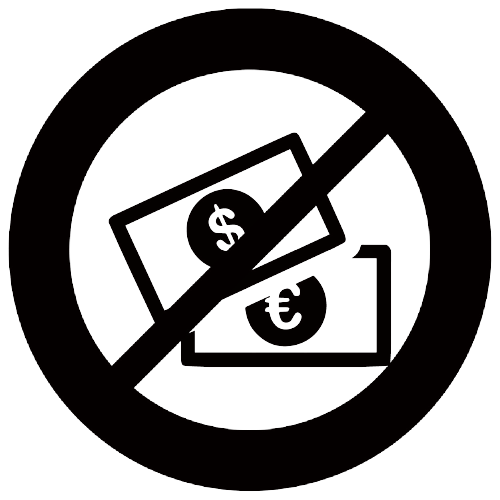Stop Sextortion: How To Deal With Online Blackmail. Victim Help 24/7.
Stop Sextortion: How To Deal With Online Blackmail. Victim Help 24/7.
Are you a victim of Sextortion?
What to do if you're being blackmailed online?
Stop Sextortion fast: DON'T PAY THE RANSOM, contact us and learn how to recover from Sextortion.











What is Sextortion Blackmail and What Does It Mean?
Sextortion is a cybercrime that involves online blackmail via Facebook, Telegram, Instagram, Reddit, or Whatsapp, and is committed by individuals who threaten to distribute your intimate images or videos on social media platforms unless a ransom in Bitcoin is paid.
The aggressor obtains compromising material through various means:
- Sexting
- Recording intimate moments
- Capturing sexual activity
- Hacking the victim
If you or someone you know is being blackmailed online, it’s crucial to know how to report sextortion and not pay the ransom.
How To Stop Sextortion: What To Do In 6 Steps

1) Keep Calm
Thousands fall prey to sextortion every day, but there’s no need to panic. ReputationUP can halt the online dissemination of intimate photos and videos and protect your digital privacy.
2) Stop Communications
Following top law enforcement guidelines and the FBI Internet Crime Complaint Center, it’s crucial to deactivate all social media accounts involved in the Sextortion, including any linked accounts. This step blocks all communication channels with the blackmailers.


3) Don't Pay The Ransom
Never succumb to paying the ransom. Complying won’t better your situation; in fact, it could escalate if you yield to threats of distributing compromising images and explicit content.
4) Save The Information
Preserve all details about your blackmailer, such as Whatsapp name, Instagram profile, Telegram ID, and any Bitcoin address. This informations is crucial to stop online blackmail.


5) Talk To Someone
Always remember, you’re not alone in your fight against Sextortion. You can rely on a trusted individual to share your burden and provide support in overcoming this challenging situation.
6) Contact ReputationUP
We prioritize your case, swiftly blocking the spread of intimate content online. We ensure utmost confidentiality, privacy, and provide 24/7 support.

Our analysts have 20+ years of global experience in reputation management.
Satisfied Clients! We work with companies, professionals, VIP and administrations.
We’ve removed 875,000+ pieces of false, negative or defamatory online content.
Our Reputation Monitoring Tool has monitored more than 10 million keywords worldwide.

How To Deal
With Sextortion?
Fill the form and get quick assistance
FAQ
Most frequent questions and answers
1) Is Sextortion a crime?
Yes. Sextortion is a crime and involves coercing, controlling, or tricking someone into sending sexual content or images they would not have otherwise sent, usually by using electronic means such as text messages or apps.
There are many different ways Sextortion can be committed, but the common denominator is the use of electronic means to get someone to do something they wouldn’t have otherwise.
2) What to do if you are a victim of Sextortion?
If you find yourself a victim of Sextortion, it’s crucial to remember the following steps:
- Stay Calm: It’s a distressing situation, but keeping a clear head will help you navigate through it.
- Cut Communication: Do not engage with the person threatening you or comply with their demands.
- Document Everything: Save all messages, pictures, or other evidence related to the incident. This can be crucial if you decide to involve law enforcement.
- Reach Out for Help: Contact local authorities and inform them about the situation. You can also reach out to organizations that specialize in dealing with such cases.
- Seek Support: Talk to someone you trust about the situation. You don’t have to go through this alone, and there are support groups and resources available for victims of Sextortion.
- Contact ReputationUP: At ReputationUP, we have the expertise to help you navigate this difficult situation. We can provide guidance, support, and professional services to help you deal with Sextortion.
3) Should I ignore Sextortion?
Are you considering ignoring Sextortion due to a lack of substantial evidence? It’s a common thought, but it might not be the most effective approach.
When faced with Sextortion, your first instinct might be to ignore it, especially if you feel there isn’t enough evidence to involve law enforcement. However, this could be a missed opportunity to combat this growing issue.
By reporting Sextortion, you’re contributing valuable information that law enforcement agencies need to understand the extent of the problem. The more they know, the more they can do to take action against these cybercrimes.
Moreover, the number of reports received about Sextortion can influence how these organizations prioritize their response. The more people step forward and report, the more attention this issue will receive.
So, think twice before choosing to ignore Sextortion. Your action could make a significant difference in the fight against this cybercrime.
4) What could happen if I ignore a Sextortionist?
Ignoring a Sextortionist can have varied outcomes. In some cases, the blackmailer may simply move on to another target.
However, in other cases, they might escalate their threats or attempt to follow through on them. It’s important to remember that even if explicit material is shared, it’s the blackmailer who is committing a crime, not you.
Ignoring them is not a guaranteed solution, and it’s generally recommended to report such incidents to local authorities and seek professional advice.
5) What to do if you get a Sextortion email?
If you get an email with a subject line such as “Sextortion is illegal. Time is up,” or “If you don’t send me nude pictures, I’ll tell everyone you’re a…,” it’s likely a Sextortion scam.
The scammers will often try to manipulate you into believing you have limited time to send them nude photos or videos, or else they’ll tell everyone you’re a bad person. The first thing you should do is report the email to the sender. If it’s a Sextortion scam, the scammer will likely remove or block the email or report the email to the authorities.
6) How to recover from Sextortion?
The first step to recovering from Sextortion is realizing that you are the victim of a crime, not your actions or behavior.
The second step is not to blame yourself, realize that you have been through a traumatic experience, and seek help.
The third step is to take steps to prevent Sextortion from happening again.
7) How to stop Sextortion?
Stopping sextortion involves taking proactive steps to protect yourself and others from falling victim to this type of online crime. Here’s how you can help prevent it:
Protect Your Privacy Online: Be cautious about what you share online, especially in private messages or with people you don’t know well. Avoid sharing intimate images or personal information that could be used against you.
Strengthen Your Digital Security: Use strong, unique passwords for all your online accounts, and enable two-factor authentication wherever possible. This adds an extra layer of protection, making it harder for someone to access your accounts without your permission.
Be Aware of Red Flags: Sextortion often starts with someone gaining your trust, so be cautious when interacting with strangers online. If someone you’ve just met online starts asking for intimate photos or videos, that’s a major red flag.
Educate Yourself and Others: Knowledge is power. Educate yourself about the tactics used by sextortionists and share this information with friends and family. The more people know, the better equipped they’ll be to avoid falling into these traps.
Report Suspicious Behavior: If someone is attempting to coerce or blackmail you online, report their behavior immediately. Most social media platforms and online services have mechanisms to report abusive behavior. Don’t hesitate to use them.
Support Victims: If you know someone who is experiencing sextortion, encourage them to seek help and not to give in to the blackmailer’s demands. Offer emotional support and help them report the crime to authorities.
Engage in Safe Online Practices: Be mindful of who you interact with online and avoid engaging in risky behaviors, such as sharing intimate content. If you do decide to share something personal, make sure you fully trust the recipient and understand the potential risks.
Seek Professional Help if Needed: If you feel that you’re at risk or if you’ve already been targeted, don’t hesitate to seek professional help. There are organizations and professionals who specialize in dealing with online blackmail and sextortion, and they can provide you with the guidance and support you need.
By taking these steps, you can reduce the risk of falling victim to sextortion and help create a safer online environment for everyone.
8) How to report Sextortion?
Reporting sextortion is an important step in protecting yourself and stopping the perpetrator. Here’s how you can do it:
Gather Evidence: Before you report anything, make sure to save all evidence related to the sextortion. This includes screenshots of messages, emails, social media profiles, and any other relevant information. The more detailed your evidence, the better.
Report to the Platform: If the sextortion is happening on a social media platform, messaging app, or email service, report the user and the messages directly to that platform. Most platforms have a built-in reporting feature for abusive behavior. Look for options like “Report,” “Block,” or “Flag” within the app or service.
Contact Law Enforcement: Sextortion is a crime, so it’s important to report it to your local police or cybercrime unit. Provide them with all the evidence you’ve collected. If you’re unsure where to start, contact your local police station, and they can guide you to the right department.
Use Cybercrime Hotlines: Many countries have specific hotlines or online portals for reporting cybercrimes, including sextortion. You can search online for a cybercrime reporting website or hotline in your country. These services can offer guidance and sometimes even take direct action against the perpetrator.
Inform Your Internet Service Provider (ISP): In some cases, your ISP can help track down the perpetrator, especially if the sextortion involves hacking or other technical breaches. Contact your ISP’s support team for assistance.
Seek Legal Advice: If you’re unsure about the reporting process or need more support, consider consulting a Sextortion lawyer who specializes in cybercrime or internet law. At ReputationUP we can provide specific legal advice and help you navigate the reporting process.
Get Support: Dealing with sextortion can be emotionally taxing. After reporting the incident, consider talking to a ReputationUP Expert that specializes in helping victims of cybercrime. We can offer the support you need during this time.
Stay Vigilant: After reporting, be sure to monitor your online accounts for any suspicious activity. Change your passwords, enable two-factor authentication, and be cautious about any new contact requests or messages.
Reporting sextortion not only helps protect you but also helps prevent others from becoming victims. Don’t hesitate to take action—help is available, and you don’t have to face this alone.
9) Where to report Sextortion?
If you’ve received a seemingly legitimate email or text message from a known contact or company, but it turns out to be a Sextortion attempt, it’s crucial to report it to the right authorities.
You can report Sextortion attempts via email or text to agencies like the Federal Bureau of Investigation, or your local or national law enforcement authorities.
Remember, reporting is a key step in combating Sextortion and ensuring your online safety.
10) Should we pay Sextortion money?
No, it’s not advisable to pay money in a Sextortion case. Paying the ransom doesn’t guarantee that the blackmailer will stop their actions.
In fact, it might encourage them to continue the extortion because they see you as willing to pay. It’s best to report the incident to local authorities and seek professional advice.
11) How to deal with Facebook Sextortion?
If you’re a victim of Sextortion via Facebook, there are several steps you can take:
- Collect Evidence: Start by gathering as much evidence as possible. Screenshots of the Sextortion material are helpful, but videos provide even more context. Especially if the Sextortion material was intended to be private, this evidence can be crucial.
- Report to Law Enforcement: Report the incident to your local law enforcement agency. Provide them with all the evidence you’ve collected.
- Leverage Facebook’s Resources: Facebook has mechanisms in place to deal with such incidents. Report the issue to them and follow their guidelines for such situations.
12) What is Financial Sextortion?
Financial Sextortion is a form of online blackmail where the perpetrator threatens to release sensitive or damaging information about the victim unless a ransom is paid, typically in the form of money or cryptocurrency.
The sensitive information can range from personal details and private conversations to intimate photos or videos.
It’s a serious crime and should be reported to local authorities if you become a victim.
1) How do online blackmailers typically find their victims?
Online blackmailers often find their victims through various means:
- Social Media: Blackmailers may target individuals who share personal or intimate information publicly.
- Data Breaches: If your data has been compromised in a breach, blackmailers could use this information.
- Phishing Attacks: Blackmailers might send deceptive emails or messages to trick you into revealing sensitive information.
- Spyware/Malware: Malicious software can give blackmailers access to your files, photos, and personal information.
Remember, it’s important to practice safe online habits, like using strong, unique passwords, being careful about what you share online, and keeping your devices’ software up to date.
2) How to handle online blackmail?
If your teenage son or daughter has been the target of an online blackmail scheme, the first thing you should do is contact the police.
Even if you think your child is likely to have been the victim of a prank, the police can help you determine whether your child has been the victim of a crime and refer you to a victim services counselor if necessary.
Next, you should contact experienced Internet privacy and digital security firm like ReputationUP that can help you navigate the complex legal issues and jargon involved in these cases, including removing all harmful content online.
3) What to do if you're being blackmailed online?
If you’re being blackmailed online, the first thing to remember is not to panic. I know it’s easier said than done, but staying calm is crucial. Here’s a step-by-step guide on what to do:
- Don’t Give In to Demands: It might be tempting to pay or comply with what the blackmailer is asking, but this usually just encourages them to ask for more. It’s important not to respond to their threats.
- Preserve Evidence: Take screenshots of any communication, messages, emails, or social media posts related to the blackmail. Save everything, including usernames, profiles, and any relevant details. This will be important if you decide to involve authorities.
- Secure Your Accounts: Immediately change your passwords for all your online accounts, especially any that the blackmailer might have access to. Enable two-factor authentication where possible to add an extra layer of security.
- Report the Blackmail: Contact the platform where the blackmail is happening—whether it’s a social media site, messaging app, or email provider. Most platforms have policies against extortion and can help you take down harmful content or block the blackmailer.
- Involve the Authorities: Consider reporting the incident to your local police or a cybercrime unit. Blackmail is illegal, and law enforcement can provide guidance and possibly take action against the blackmailer.
- Seek Support: Dealing with blackmail can be incredibly stressful. Reach out to someone you trust—a friend, family member, or counselor like ReputationUP. You don’t have to go through this alone, and having support can make a big difference.
Remember, the most important thing is to protect yourself. Taking action quickly can help stop the blackmailer in their tracks and prevent further harm.
4) Should I pay if someone is blackmailing me online?
No, you should not pay if someone is blackmailing you online.
Paying the blackmailer doesn’t guarantee that they will stop their actions.
In fact, it might encourage them to continue the extortion because they see you as willing to pay. It’s best to report the incident to local authorities and seek professional advice.
5) Can a scammer publish my photo?
Yes, a scammer can potentially publish your photo if they have gained access to it. This is often a tactic used in Sextortion cases, where the scammer threatens to release intimate or compromising photos unless a ransom is paid.
However, it’s important to remember that this is illegal in many jurisdictions. If you find yourself in this situation, it’s recommended to report the incident to local authorities and seek professional advice.
6) Who can I report online blackmail to?
You can report online blackmail to several entities:
- Local Law Enforcement: Your local police department is a good starting point. They can guide you on the next steps and may work with other agencies for cases crossing jurisdictions.
- Online Platforms: If the blackmail occurred through an online platform (like social media), report it to the platform. Most have policies against this type of behavior and can take action.
- Internet Crime Complaint Center (IC3): In the U.S., you can report online blackmail to the IC3, a partnership between the FBI and the National White Collar Crime Center.
- Cybersecurity Firms: Professionals in cybersecurity like ReputationUP may be able to provide assistance or advice, especially for complex cases.
Remember, it’s important to keep any evidence related to the blackmail, such as emails, texts, or other forms of communication.
7) How to deal with blackmail Sextortion on Reddit?
If you’re dealing with Sextortion on Reddit, here are some steps you can take:
- Don’t Respond or Engage: Avoid negotiating or communicating with the blackmailer.
- Preserve Evidence: Keep a record of all communications and take screenshots if possible. This can be useful if you decide to report the incident.
- Report to Reddit: Use Reddit’s reporting system to report the user and the specific messages or posts.
- Report to Local Authorities: Contact your local law enforcement agency and provide them with all the information you have.
- Contact a Professional: Consider reaching out to a professional like ReputationUP who specializes in online security or legal advice.
8) Can law enforcement help if I'm being blackmailed online?
Yes, law enforcement can definitely assist if you’re being blackmailed online. They can investigate the matter, potentially trace the blackmailer, and take appropriate legal action.
However, the effectiveness can vary depending on the jurisdiction and the specifics of the case. It’s always recommended to report such incidents to your local law enforcement agency.
9) What resources are available for victims of online blackmail?
There are several resources available for victims of online blackmail:
- Local Law Enforcement: They can provide guidance on reporting and legal actions.
- National and Local Support Groups and Hotlines: Many countries have hotlines and support groups that provide immediate assistance and long-term support.
- Online Platforms: Social media platforms and email providers often have resources and reporting mechanisms for abuse.
- Legal Counsel: Sextortion lawyers and firms like ReputationUP, specializing in cybercrime, can provide advice tailored to your situation.
- Mental Health Professionals: Therapists and counselors can provide emotional support and coping strategies.
10) Can online blackmail affect my professional life?
Yes, online blackmail can potentially affect your professional life. If the blackmailer follows through on their threats, it could lead to personal information or compromising material being shared publicly, which could impact your professional reputation.
However, it’s important to remember that being a victim of such a crime is not a reflection of your professional abilities or character. If you’re being blackmailed, it’s recommended to report the incident to local authorities and seek professional advice.
11) List of online blackmail social media platforms
Online blackmail can occur on virtually any social media platform, but some of the most commonly reported include:
- Snapchat
- Telegram
- TikTok
Remember, it’s important to use strong, unique passwords for each platform and to be cautious about what information you share, even in private messages.
12) How to overcome Sextortion and online blackmail?
Overcoming sextortion and online blackmail is tough, but you can take steps to regain control and protect yourself. Here’s what you can do:
- Pause and Assess: When faced with sextortion, take a moment to breathe. It’s natural to feel fear and anxiety, but try to gather your thoughts before reacting. Keeping a clear mind will help you make better decisions.
- Don’t Engage: Resist the urge to respond to the blackmailer’s demands. Engaging with them often only gives them more leverage. Instead, cut off all communication with the person threatening you.
- Document Everything: Before you block the blackmailer, make sure to document all interactions. Save messages, emails, and any other evidence that shows what’s happening. This information can be useful if you decide to seek help.
- Strengthen Your Online Security: Immediately update your passwords and enable two-factor authentication on your accounts. This can prevent the blackmailer from accessing more of your personal information. Also, review your privacy settings on social media to limit what others can see.
- Report the Crime: Sextortion is illegal, and you have every right to report it. Contact the platform where the incident occurred and inform them of the situation. You should also consider reporting the crime to local law enforcement or a cybercrime hotline. They can offer advice and may be able to take legal action.
- Get Support: It’s important not to deal with this alone. Reach out to a trusted friend, family member, or counselor like ReputationUP who can offer support. Talking about what’s happening can help you feel less isolated and give you the emotional strength to get through it.
- Take Care of Yourself: This experience can be emotionally draining, so it’s important to take care of your mental health. Engage in activities that help you relax and reduce stress, whether that’s talking to someone, exercising, or simply taking time to rest.
- Look Forward: Remember that this situation doesn’t define who you are. It’s a challenging experience, but you can move past it. By taking the right steps and leaning on your support system, you can overcome this and regain your peace of mind.





